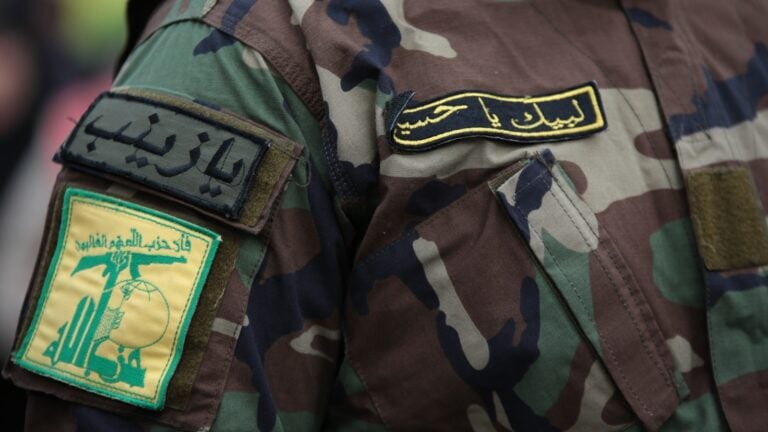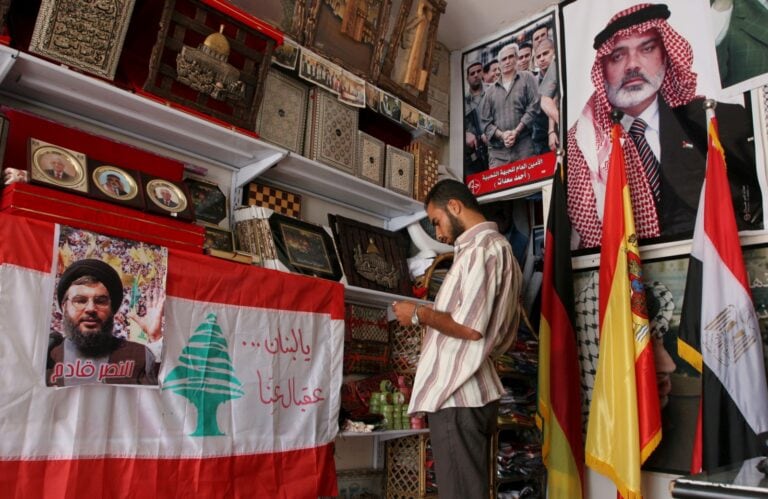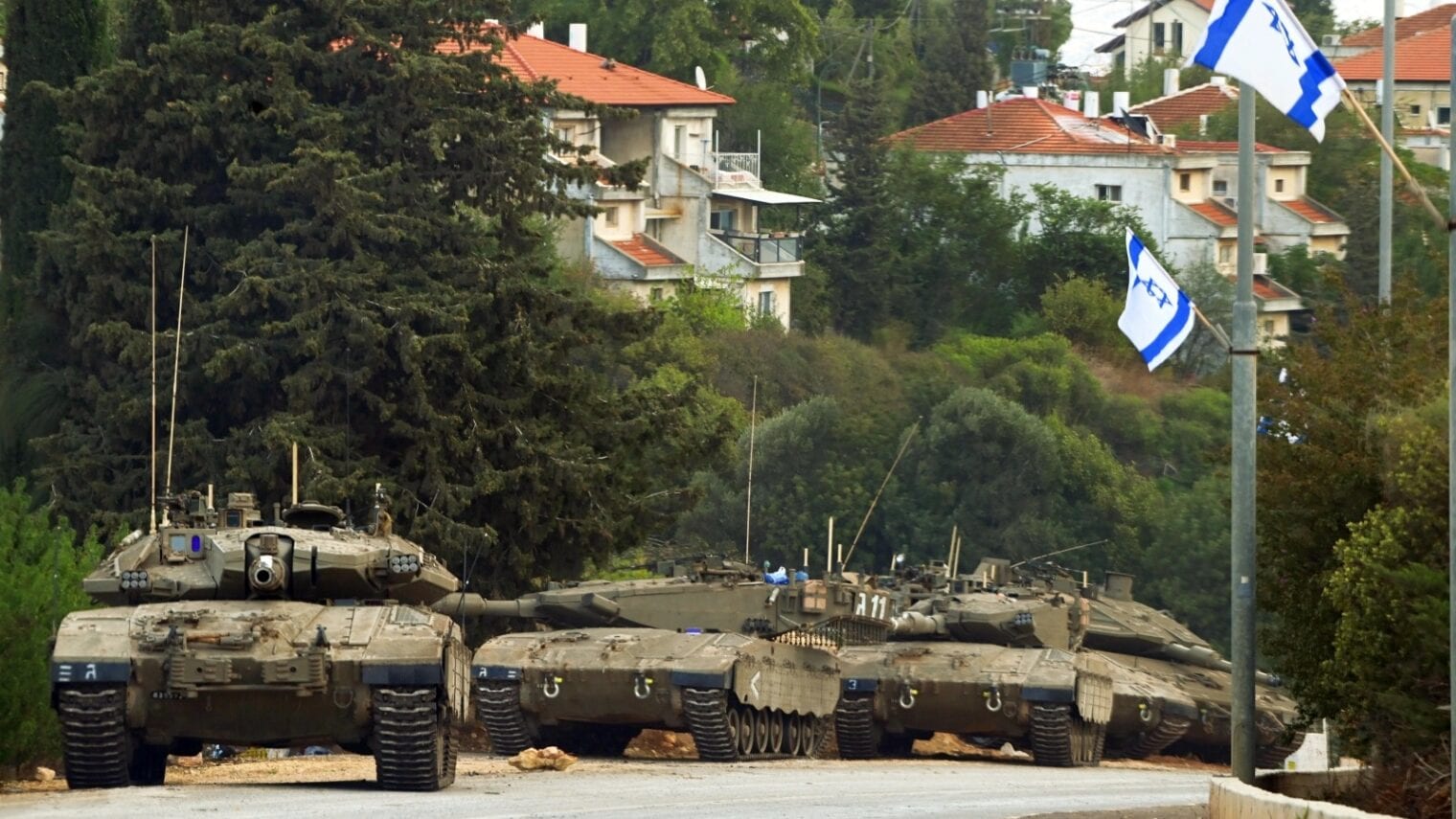As Israel wages war on Hamas in the Gaza Strip, following its attack on the country’s south on October 7, it is also keeping a careful eye on the north.
The terrorist organization Hezbollah operates out of Lebanon on Israel’s northern border. While it has been shooting at Israeli forces, sometimes with deadly consequences, over the past two months, it has yet to join in the violence on a more massive scale.
But what’s Hezbollah in Lebanon got to do with the Palestinian group Hamas in Gaza?
Why is it offering support and what is its connection to faraway Iran? Most importantly, perhaps, where will this take us?

ISRAEL21c turned to Israeli experts specializing in Hezbollah to get the lowdown.
Iran vs. Israel
“We need, first of all, to explain that in recent years Israel has been facing a resistance front led by Iran, which includes all the elements of the Shi’ite [Muslim] axis headed by Hezbollah,” explains Orna Mizrahi, a senior researcher at the Institute for National Security Studies in Tel Aviv and the former deputy national security adviser for foreign policy at Israel’s National Security Council.

“In this Iranian, Shi’ite axis, we include Hezbollah, Assad in Syria, the Shi’ite militias in Iraq and Syria and the Houthis in Yemen,” she adds.
“In recent years, it was joined by extremist Palestinian elements, Hamas and Palestinian Islamic Jihad, which have been receiving training, financial support and weapons from Iran. Despite them being Sunni [rather than Shi’ite], Iran has added them to this composition, which as far as it’s concerned serves the interests of its struggle against Israel.”
The present war has increasingly exposed the two opposing axes in the region – the Iran-led axis that includes Hamas and Palestinian Islamic Jihad, and the axis of Israel, the United States and the moderate countries of the world, she says.
A low-intensity fear campaign
“Hezbollah was born following the Israeli invasion of Lebanon in 1982,” notes Prof. Asher Kaufman, director of the Kroc Institute for International Peace Studies at the Indiana-based University of Notre Dame. He specializes in the relations between Israel, Syria and Lebanon.

“Up until the year 2000, their main occupation was to fight the Israeli military in Lebanon, and despite the Israeli withdrawal from Lebanon in 2000 it continues to treat Israel as its raison d’etre,” he adds.
“It has continued being part of the pro-Iranian axis in the Middle East, in the battle against Israel for hegemony and political power in the Middle East, and as such sees itself as part of this Middle Eastern resistance front against the ‘Zionist entity,’ as it calls Israel.”
Following the October 7 terrorist attacks by Hamas in the south, “Hezbollah immediately offered its support, and the following day already announced that it’s joining the fight with Hamas, but did so in a limited way,” Kaufman says.
“The tactic that they’re employing at the moment is to keep around half of the IDF busy up north and ground it there, while conducting a low-intensity campaign against Israel that has seen the evacuation of thousands of Israels who can’t live in the north right now out of fear of the outbreak of an all-out war and a repetition of what happened in the region near Gaza – that Hezbollah’s Radwan forces will invade and overtake communities in the north.”
Things could change

“Hezbollah has been very minor in what it’s been doing,” concurs Prof. Eyal Zisser, the vice rector of Tel Aviv University and an expert on Syria and Lebanon.
“It’s fired in a very limited way toward military targets in the border region, and this way has signalled and said, ‘We don’t want an all-out, total war, but we identify with Hamas and want to relieve the Israeli pressure on it, but we don’t wish for an all-out war like the one in Gaza.’”
Brig.-Gen. (ret.) Shimon Shapira, author of the book Hizballah: Between Iran and Lebanon, warns this situation can change.
“For example, if Israel carries out an extensive operation aimed at expelling these forces, it could ignite things in the direction of a more massive war,” he says.
“Until now, it hasn’t happened, because among other reasons Hezbollah understands that Iran’s strategic aims don’t include reaching a confrontation between Iran and the United States,” he explains. “Both Hezbollah and Iran wish to avoid this possibility.”
This, Zisser, notes, underlines a major difference between Hamas and Hezbollah.
“Iran is providing Hamas with weapons and aiding it financially, but Hamas is not a proxy or an extension of Iran that owes all it has to the Iranians, like Hezbollah – that’s why they’re more independent in their operations,” he says.
A winning card
“Neither Iran nor Hezbollah are interested in a widespread war,” concurs Mizrahi from the INSS.
“First of all, Iran still needs Hezbollah as a winning card, for example in case Iran itself is attacked. Second, Hezbollah is concerned with what could happen to Lebanon, which is anyhow in a difficult state, as well as with its own status within Lebanon.”

“Third, there’s the issue of the United States standing by us unequivocally. There’s a huge American military presence in our area, unlike ever before. Already at the beginning, President Biden hinted to Iran and Hezbollah that they shouldn’t join the war. This expected American intervention is a restraining factor,” she says.
“And fourth, Hezbollah has somewhat lost the element of surprise. The IDF is spread out across the northern frontier, and Hezbollah would be hard-pressed to reach an achievement like Hamas did on October 7.”
While Israel could still be dragged into a war on its northern border, she says, “Hezbollah is more interested in Iran than it is in Hamas – what it wants, what it thinks. If Hezbollah needs to choose between what is important to Iran and what is important for Hamas, it is clear that they’ll choose Iran.
“A victory for Hamas, however, is important for them both, because it will serve the interests of the whole front. They’re all connected in one front now. But this has always been Iran’s strategy, to stay out of the game and direct others while saying that the latter are acting on their own account.”
She adds that the Iranians have also tried to get other elements involved, most prominently the Houthis in Yemen, who have fired long-range missiles toward Eilat and hijacked two sea vessels that it claims have Israeli connections.
“There’s also been the shooting carried out by the Iraqi Shi’ite militias on American bases, mostly in Syria.”
What happens next?
All the experts were hesitant to predict what Hezbollah will do next.
“The way I see things at the moment, I think that it’s in Hezbollah’s interest to keep the fighting against Israel at low intensity,” says Kaufman.
“It shows that they’re helping Hamas, and it really is grounding half of the IDF to the north. No less important, it has resulted in hundreds of thousands of Israels from the north now sleeping in their grandmothers’ living rooms in Tel Aviv, or at hotels,” he points out.
“It depends, first of all, on how things go in Gaza,” says Zisser.
“And then we need to see if we’ll operate in the north, having decided that the reality that’s been created is impossible for us, and that there’s a wish to tackle the threat from Hezbollah. So we must wait and see.”















